Ambling through the packed CP+ 2024 Camera and Photo Imaging Show halls in Yokohama Japan, I was drawn to the Voigtlander stand decked with various lenses alongside compatible cameras. Then I saw it – a gorgeous lens attached to the retro Nikon Z fc. I had to look twice: was this a manual-focus SLR lens from 30 years back, or was it in fact something new?
As it turns out, the Voigtlander Nokton D35mm f/1.2 I was gawping at has been around for almost two years, so it's hardly new by today's standards; but this was my first time seeing such a lens in the flesh, and it was love at first sight.
The old-time German lens maker is now owned by Cosina, and under Japanese ownership it has become increasingly active, producing compelling optics for today's leading mirrorless camera companies such as Fujifilm and Nikon, including full-frame models like the Nokton 50mm f/1.0.
I was able to handle the lens – a 35mm f/1.2 for APS-C cameras (with an approximate 53mm full-frame equivalent focal length) – and I immediately knew that it was what the Nikon Zf and Z fc cameras desperately needed.
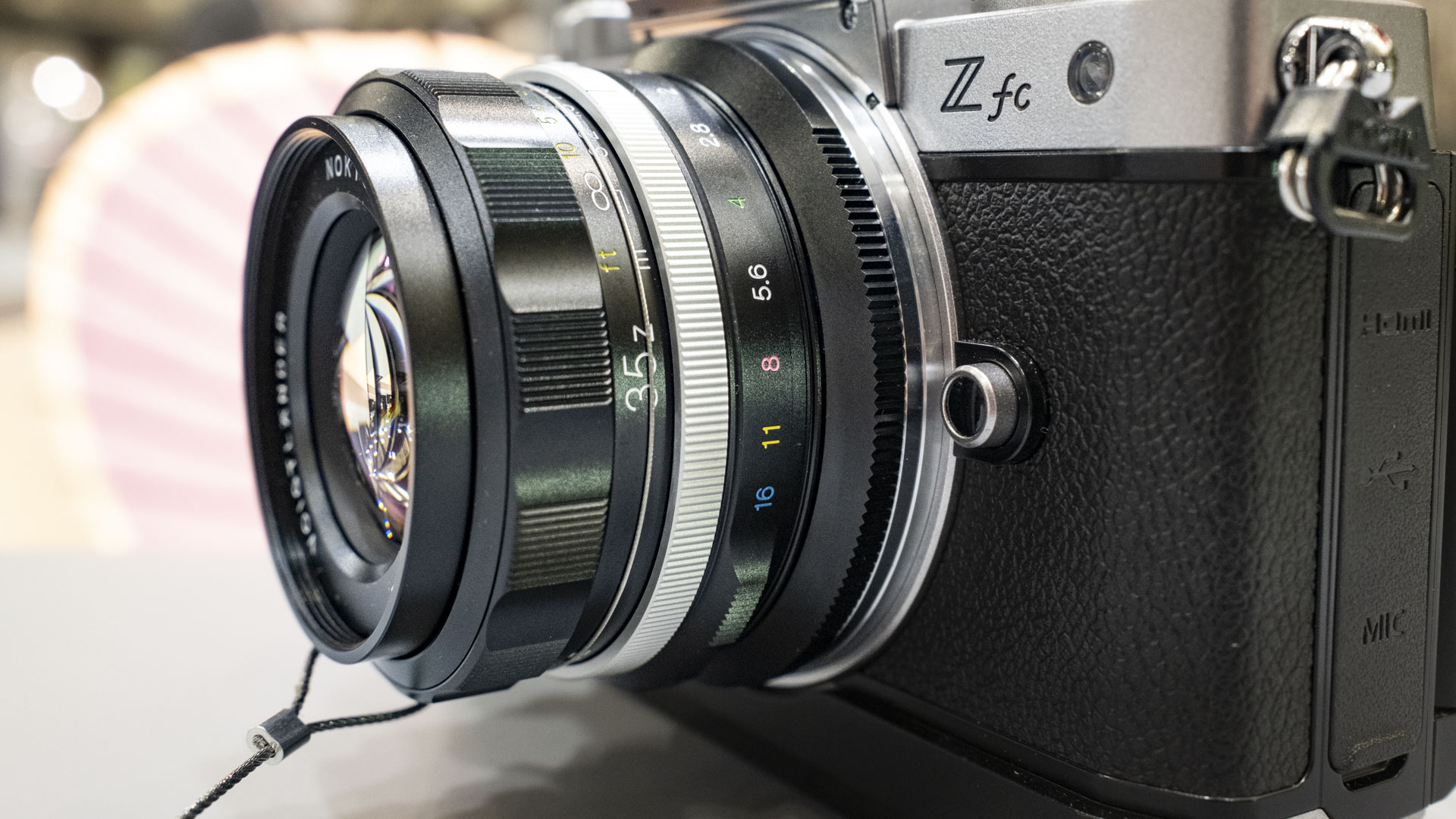
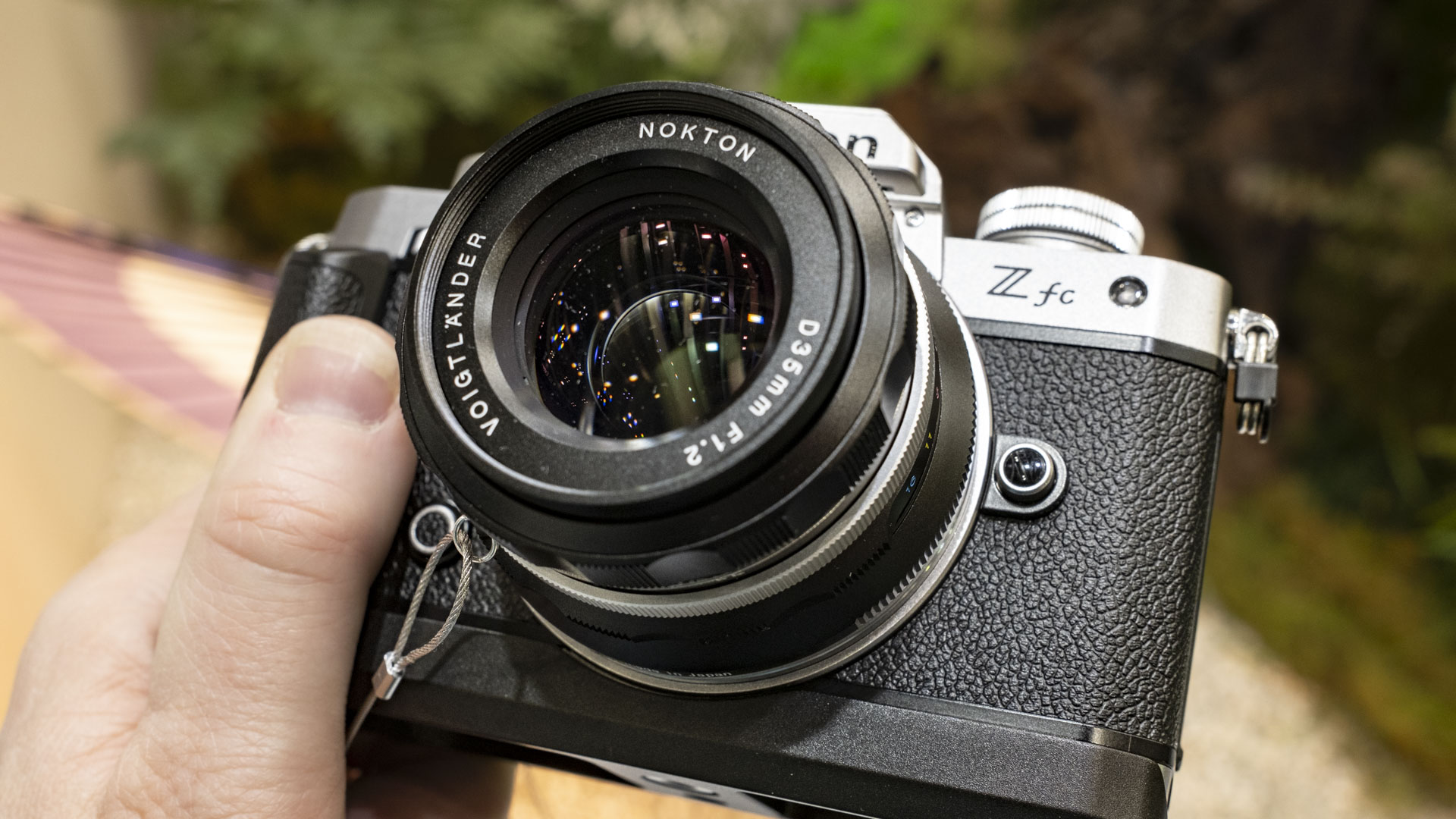
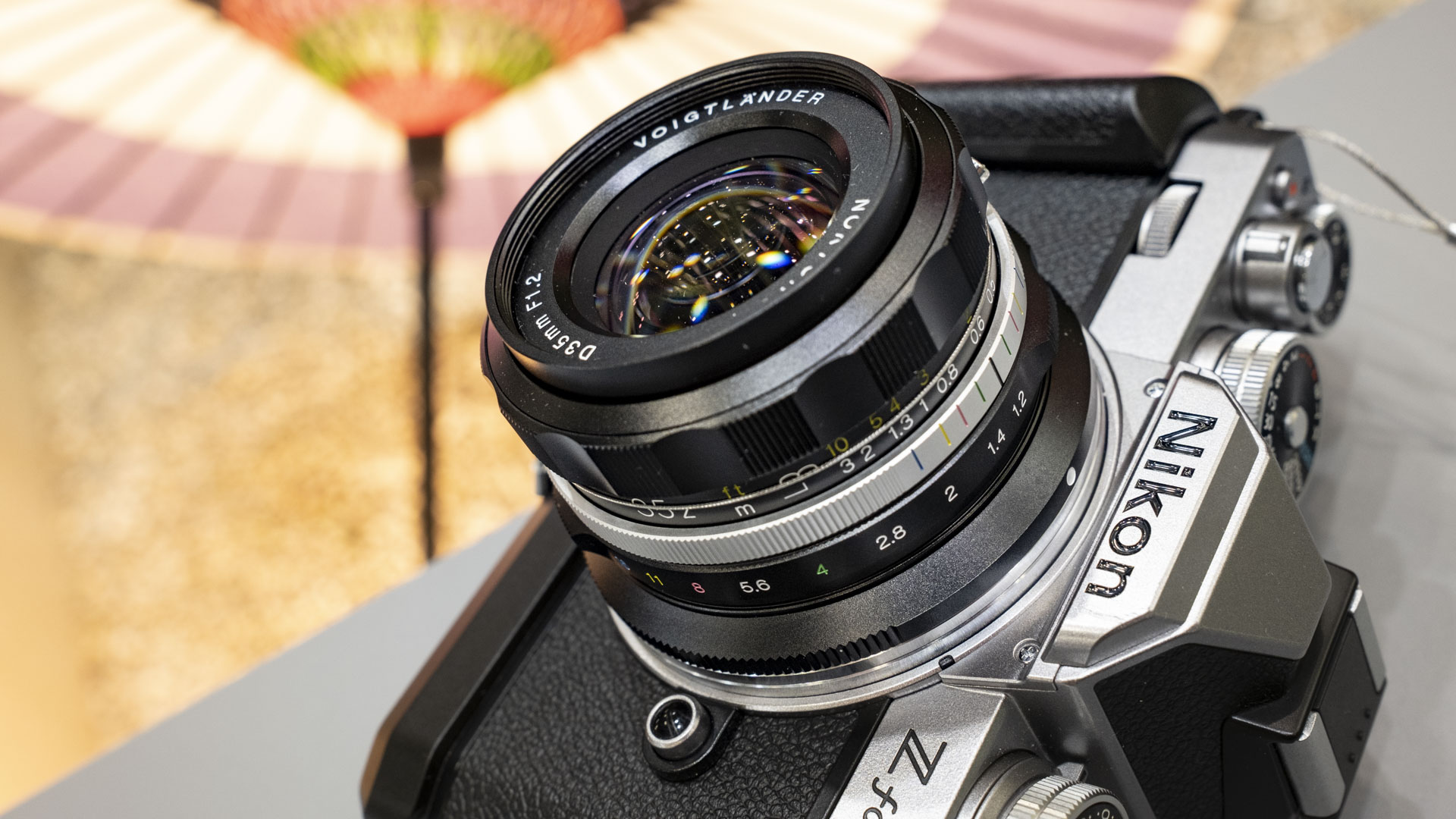
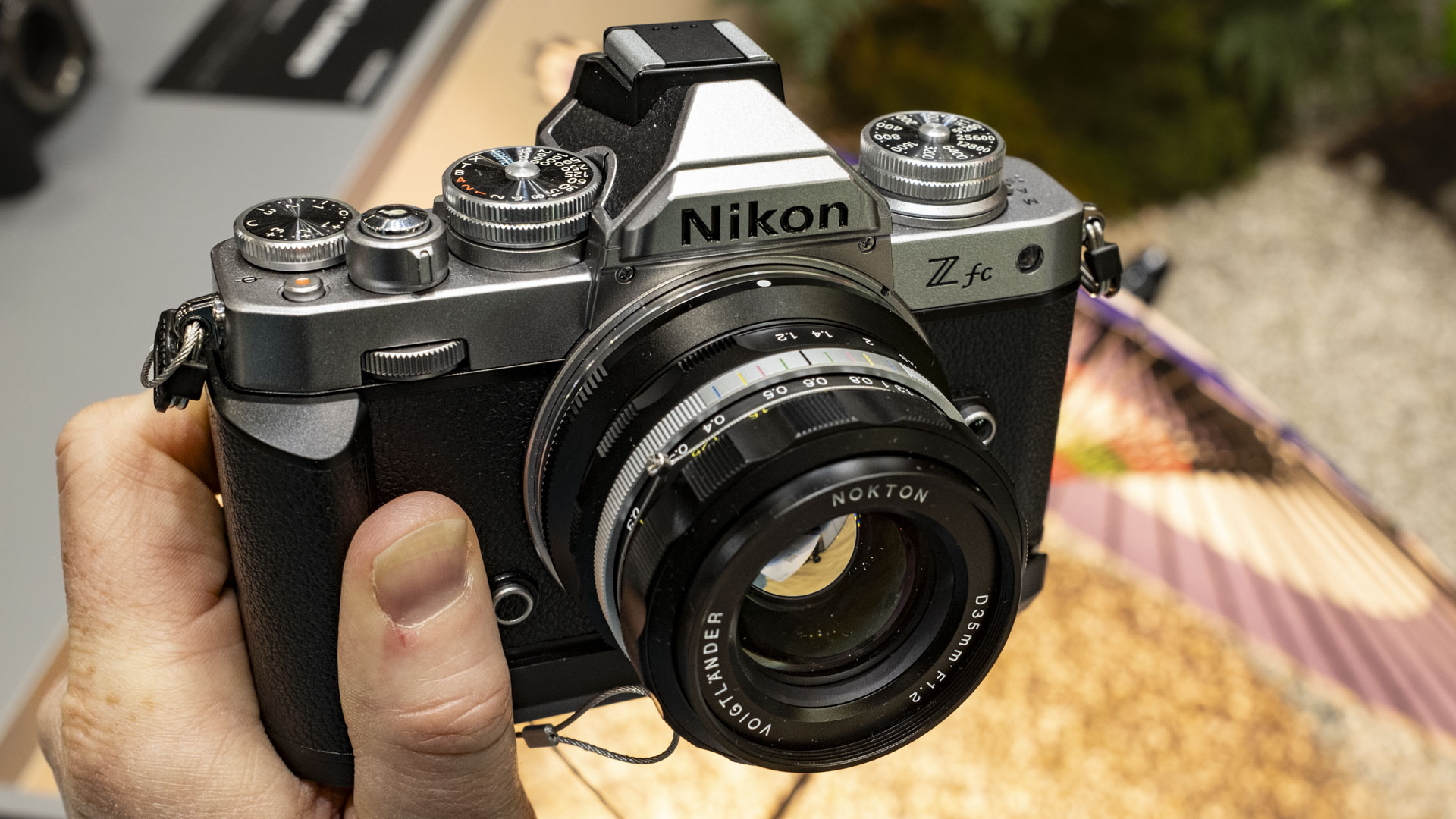
Nikon is arguably the only camera company to come close to Fujifilm's dominance of the retro digital camera market, a run that began with the Finepix X100 in 2010, and which right now includes sold-out models like the new Fujifilm X100VI. Yet for all the gorgeous Nikon FM2-inspired retro design of the Zf and Z fc, the cameras lack lenses to compliment their aesthetic.
The Zf and Z fc perform as well as if not better than their counterparts, and are packing cutting-edge digital tech, but most photographers buy them primarily because of how they look. Years after launch, however, they're still missing a crucial component – complimentary lenses. It's all very well getting a Nikon mirrorless camera that packs today's tech and looks decades old, but pairing it with one of Nikon's modern Z-mount lenses somewhat spoils the effect.
Alongside the Z fc, Nikon launched the Nikkor Z 28mm f/2.8 SE lens – it's the lens pictured in our Nikon Z fc review – which does look the part, but why haven't we seen other Nikon-made lenses to compliment its line of retro cameras? And for me that Nikon lens lacks a crucial component to complete the old-school user experience; a dedicated aperture ring. Besides adapting old lenses for Nikon's retro mirrorless cameras, it turns out we have to look elsewhere – to Voigtlander.
Voigtlander's manual-focus-only lens has a ridged focus ring with smooth rotation, manual focus distance markings, and – drum roll – an aperture control ring. There's not a single Nikon Z lens with an aperture ring, and it's the kind of feature you'd expect to see on old-school lenses. Heck, you can find one on many Fujifilm XF lenses (and Sony's modern mirrorless lenses like the FE 24-50mm f/2.8, too).
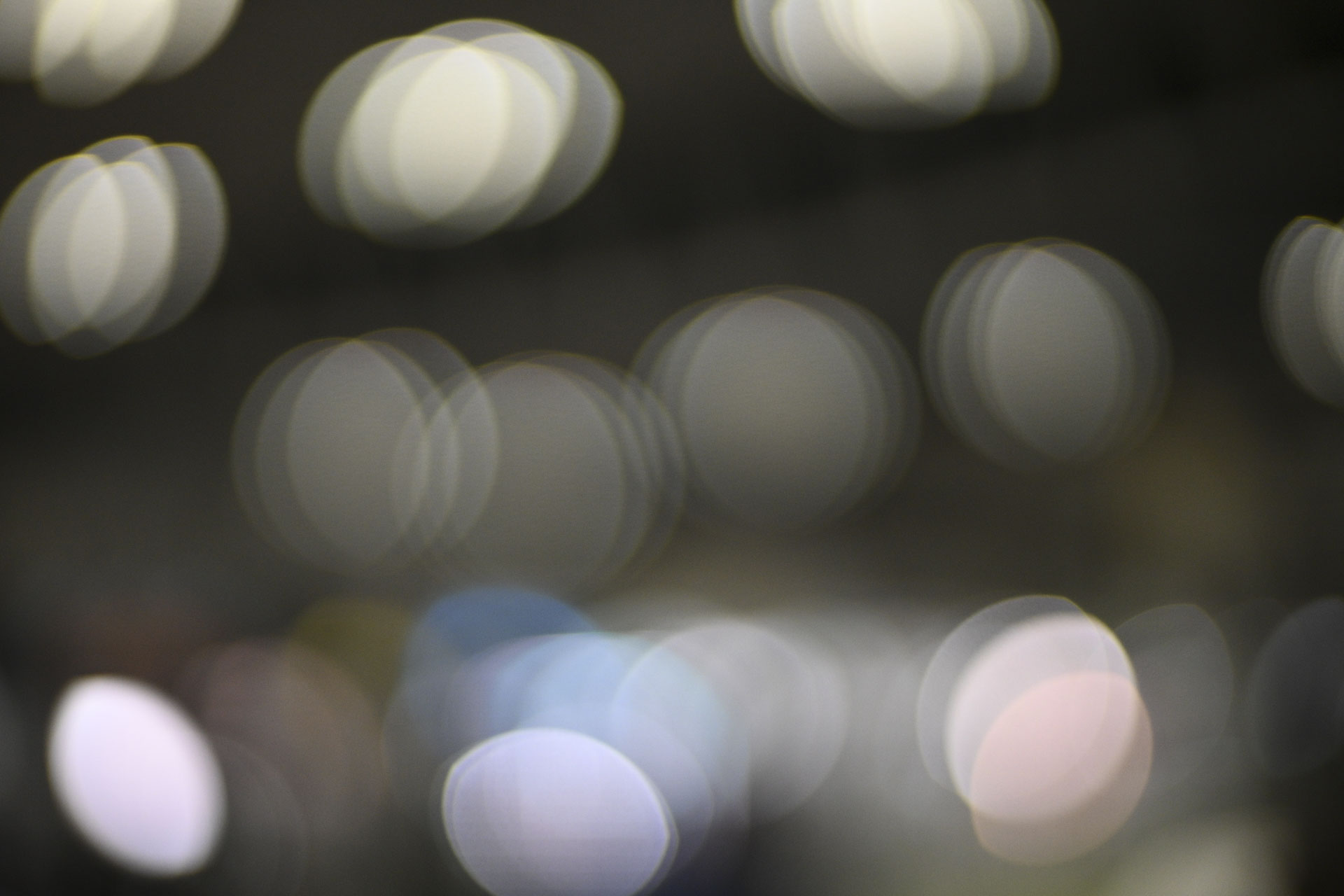
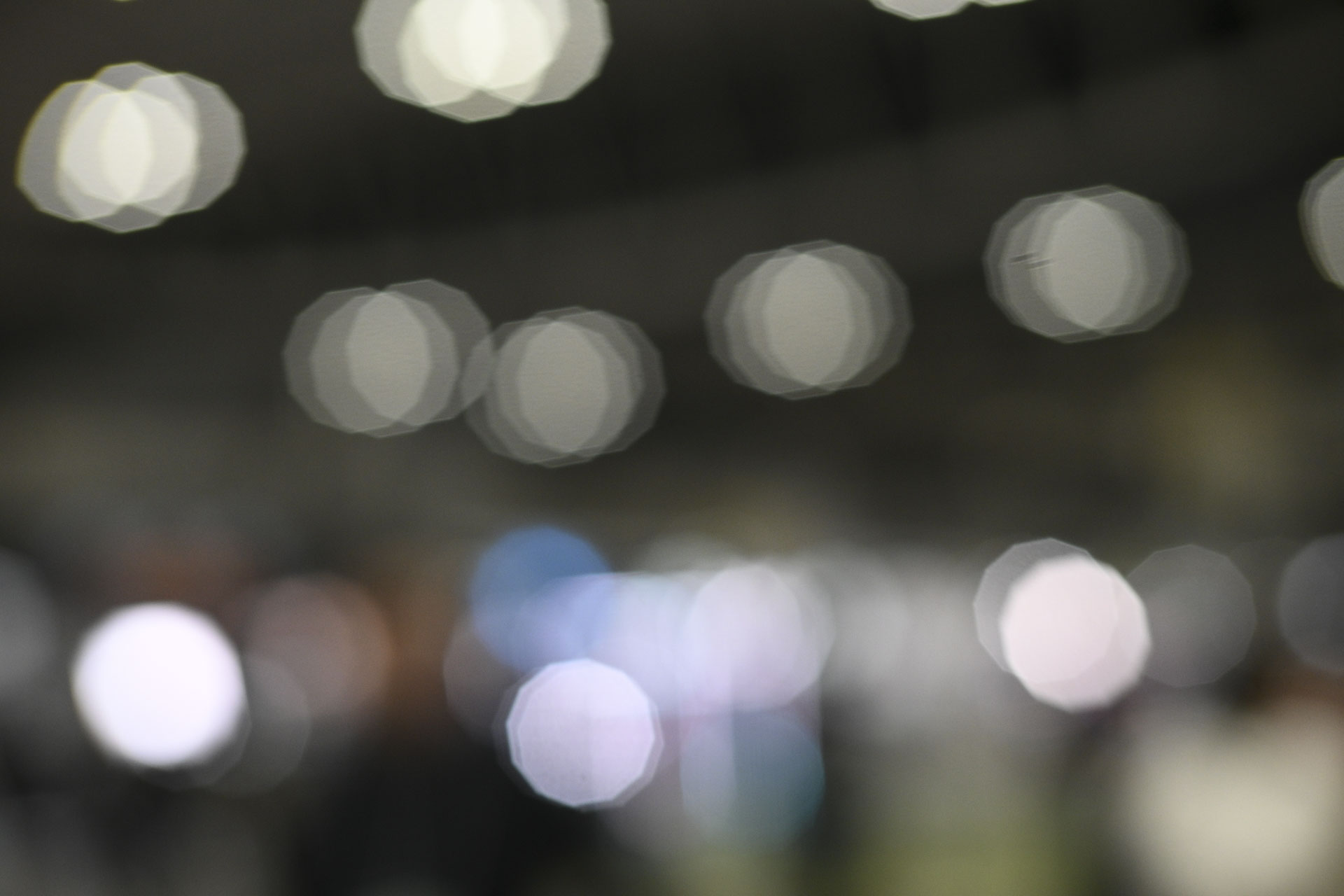
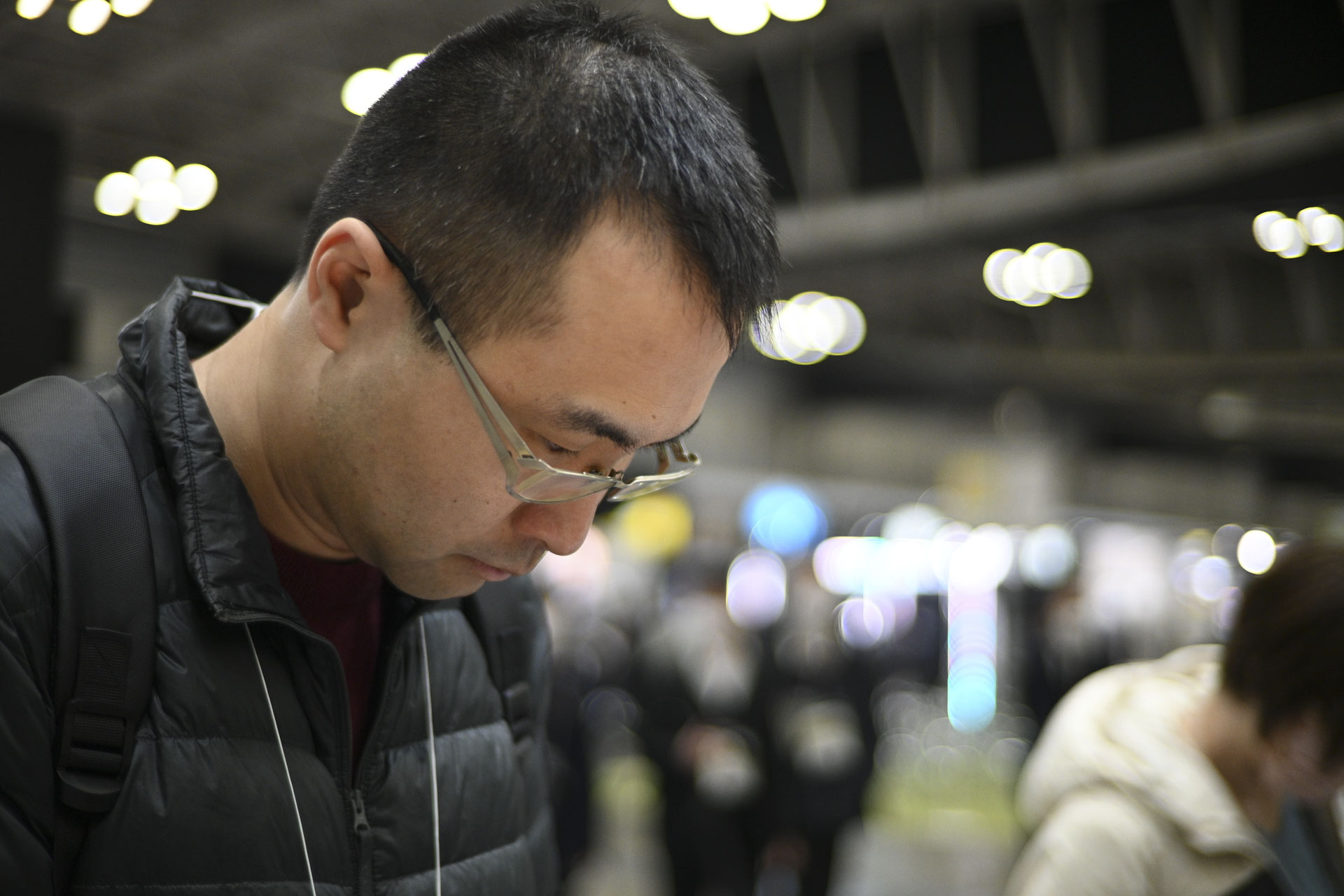
I was able to try Voigtlander's classic-looking lens mounted to a Z fc, and purely on a visual level it's a dream match.
I put a memory card in the camera and, rooted to the spot (I wasn't able to move from the stand), shot some quick frames, cycling through the lens's aperture range to check bokeh, and took a portrait of the person next to me to check sharpness (see above).
From those quick image checks I don't think the lens will win any awards for optical quality, but shots look decent enough. Bokeh is at its creamiest at either f/1.2 or f/1.4, while true sharpness kicks in a f/2, so you have to choose between a softer and dreamier look or pin-sharp detail.
It's a manual-focus-only lens, too, so you can't enjoy the latest subject detection autofocus, though the Nikon Zf also has some of the best manual focus aids around. (note that if you're using the APS-C lens with the full-frame Nikon Zf, the image area is cropped to avoid vignetting.)
There are electronic contacts in the metal lens mount, and so all metadata is logged in your files for easy reference. Yes it's manual-focus only, and has the old-school looks, but with electronic contacts it's also a modern lens built for today's mirrorless cameras (also available in the Fujifilm X-mount, albeit with a different look to match Fujifilm's style).
Those who have bitten the bullet and bought a Nikon Zf or Z fc should definitely check out the Voigtlander Nokton D35mm f/1.2. However, I was a bit surprised by the price of the lens. It's around $600 / £550 for a manual-focus, fixed-focal-length standard lens that's relatively easy to manufacture, and is lacking in terms of outright image quality when pushed to its limits.
That said, the Voigtlander more than makes up for those shortcomings in the user experience, and – yes – looks, departments. Looks matter in photography, but that's more often the case when we're talking about images, rather than the gear used to capture them.
You might also like
source https://www.techradar.com/cameras/camera-lenses/voigtlanders-stunning-retro-lenses-are-what-nikons-zf-and-z-fc-mirrorless-cameras-badly-need


0 Comments